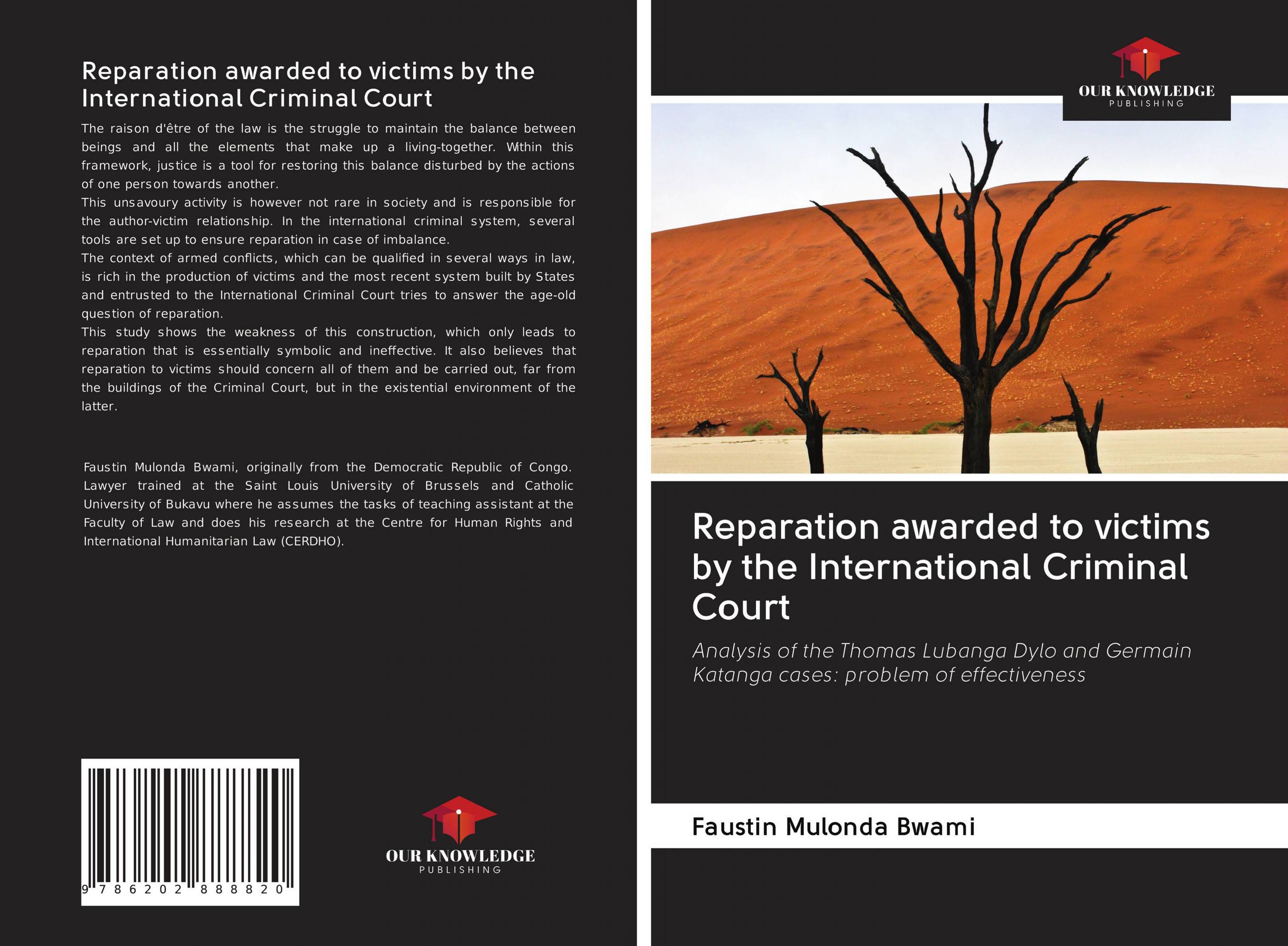| Поиск по каталогу |
|
(строгое соответствие)
|
- Профессиональная
- Научно-популярная
- Художественная
- Публицистика
- Детская
- Искусство
- Хобби, семья, дом
- Спорт
- Путеводители
- Блокноты, тетради, открытки
Reparation awarded to victims by the International Criminal Court. Analysis of the Thomas Lubanga Dylo and Germain Katanga cases: problem of effectiveness

В наличии
| Местонахождение: Алматы | Состояние экземпляра: новый |

Бумажная
версия
версия
Автор: Faustin Mulonda Bwami
ISBN: 9786202888820
Год издания: 2020
Формат книги: 60×90/16 (145×215 мм)
Количество страниц: 52
Издательство: Our Knowledge Publishing
Цена: 17827 тг
Положить в корзину
Ожидает определения тематики
Код товара: 907044
| Способы доставки в город Алматы * комплектация (срок до отгрузки) не более 2 рабочих дней |
| Самовывоз из города Алматы (пункты самовывоза партнёра CDEK) |
| Курьерская доставка CDEK из города Москва |
| Доставка Почтой России из города Москва |
Аннотация: The raison d'être of the law is the struggle to maintain the balance between beings and all the elements that make up a living-together. Within this framework, justice is a tool for restoring this balance disturbed by the actions of one person towards another.This unsavoury activity is however not rare in society and is responsible for the author-victim relationship. In the international criminal system, several tools are set up to ensure reparation in case of imbalance.The context of armed conflicts, which can be qualified in several ways in law, is rich in the production of victims and the most recent system built by States and entrusted to the International Criminal Court tries to answer the age-old question of reparation.This study shows the weakness of this construction, which only leads to reparation that is essentially symbolic and ineffective. It also believes that reparation to victims should concern all of them and be carried out, far from the buildings of the Criminal Court, but in the existential environment of the latter.
Ключевые слова: reparation, Victims, human rights



